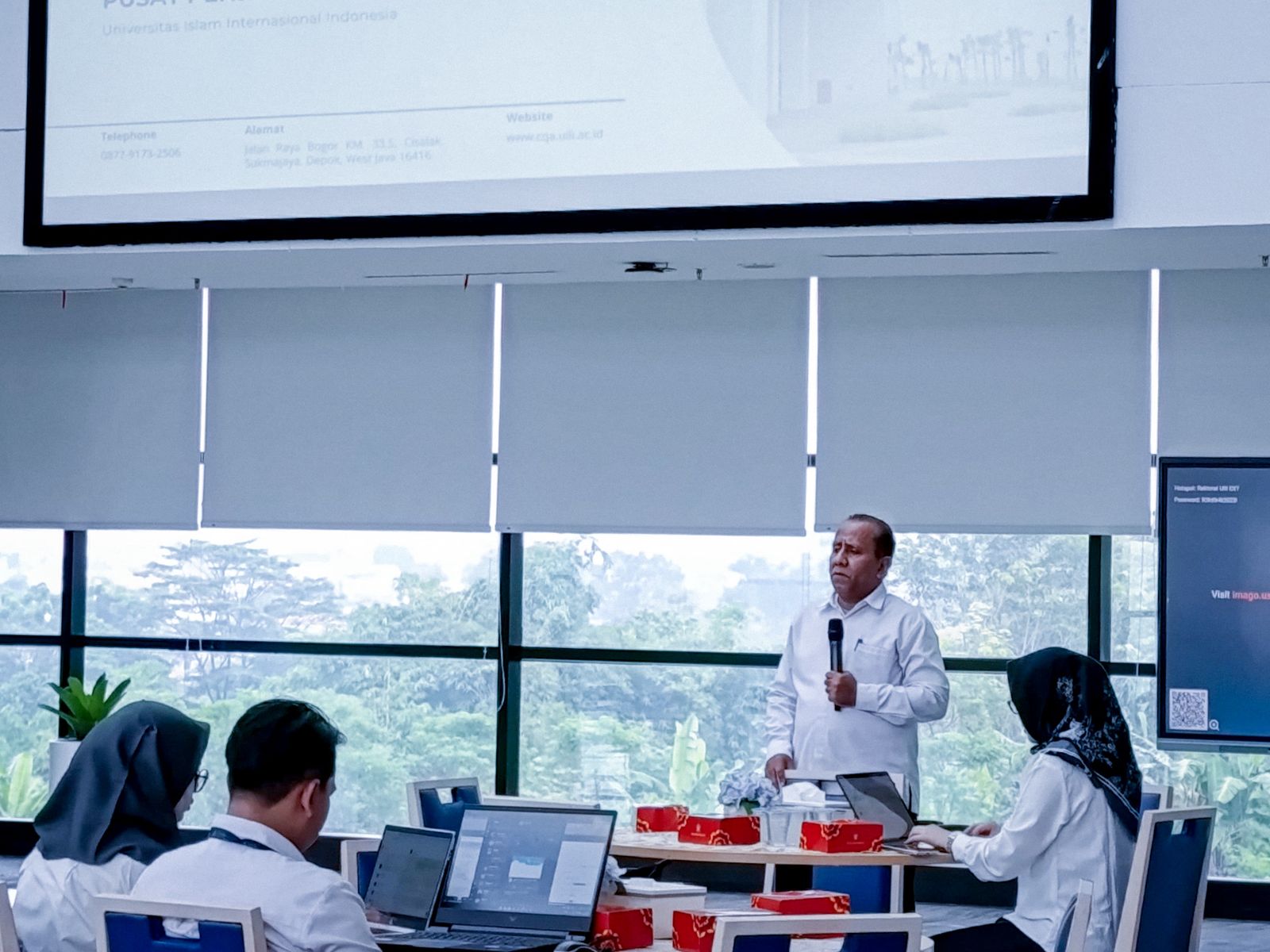July 14, 2025 | Contributor: Riski Maulana | Editor: Regiani Yunistika

Depok, July 14, 2025 — In anticipation for the upcoming Institutional Accreditation Field Assessment (APT) scheduled in August 2025, Universitas Islam Internasional Indonesia (UIII) conducted a quantitative and qualitative data updating session on Monday, July 14, 2025, at the Prosession Hall, Rectorate Building, UIII.
The session was led by Dr. Chaider S. Bamualim, MA, Acting Head of the Center for Quality Assurance (CQA), with Prof. Muhammad Zuhdi, M.Ed., Ph.D., a prominent quality assurance specialist. The event gathered cross-unit officers from UIII, including University Leaders, Head of Centers, Quality Assurance Team (GJM).
Dr. Chaider stressed in his introductory remarks that this initiative is a strategic step to ensure the accuracy and consistency of data submitted in the Institutional Self-Evaluation Report (LED-PT) and Institutional Performance Report (LKPT). Furthermore, this data update supports the implementation of Internal Quality Audit (AMI) scheduled for the end of July 2025, which also serves as a significant activity for the benefit of institutional accreditation.
Prof. Zuhdi highlighted the importance of cross-unit collaboration during data compilation, particularly when adjusting data from 2022 to 2023 (previous academic year) to 2023 to 2024 (current reporting year). He added that relevant supporting documentation that is digitally available must be included with every accreditation criterion. In addition, it is necessary to ensure alignment of the main university’s documents, including Key Performance Indicators (IKU), Performance Agreement (Perkin), and Strategic Plan (Renstra), with the university’s long-term vision.
As the discussion neared the concluding point, Prof. Zuhdi remind UIII to pay focus on mitigating possible risk. He advised that units at UIII to prepare a mitigation risk document and the document then be followed up with the endorsement of Rector’s Decree as validation.
UIII has once again commit to providing accurate, up-to-date, and accountable data in pursuit of acquiring the best possible results in the institutional accreditation. Collaboration remains a vital key to building a robust and sustainable institutional accreditation system.